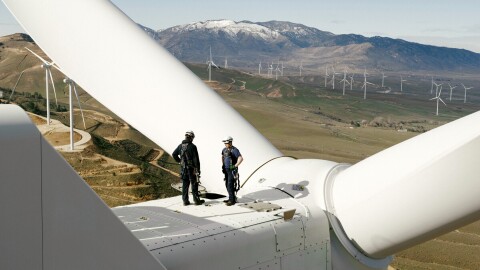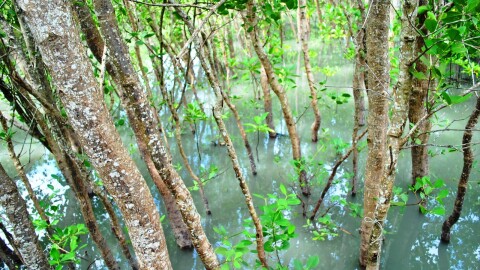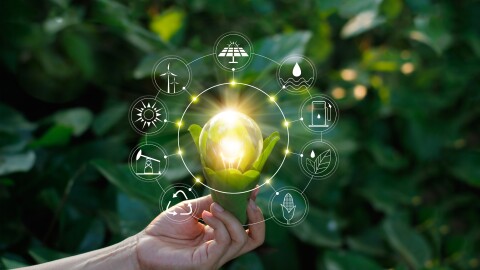As customers and communities are adapting and adjusting to a new way of life amid the pandemic, sanitation and recycling workers on the front lines are keeping essential waste disposal systems and services operating around the country. At Amazon, we appreciate the role that the sanitation and recycling systems play in keeping us and the planet healthy and safe. Despite the challenges that recycling has faced in recent years, Amazon believes in the long-term and in investing in the U.S. recycling system. We will continue to find new ways to support the sustainable disposal of packaging and products as part of our commitment to The Climate Pledge of becoming net-zero carbon by 2040.
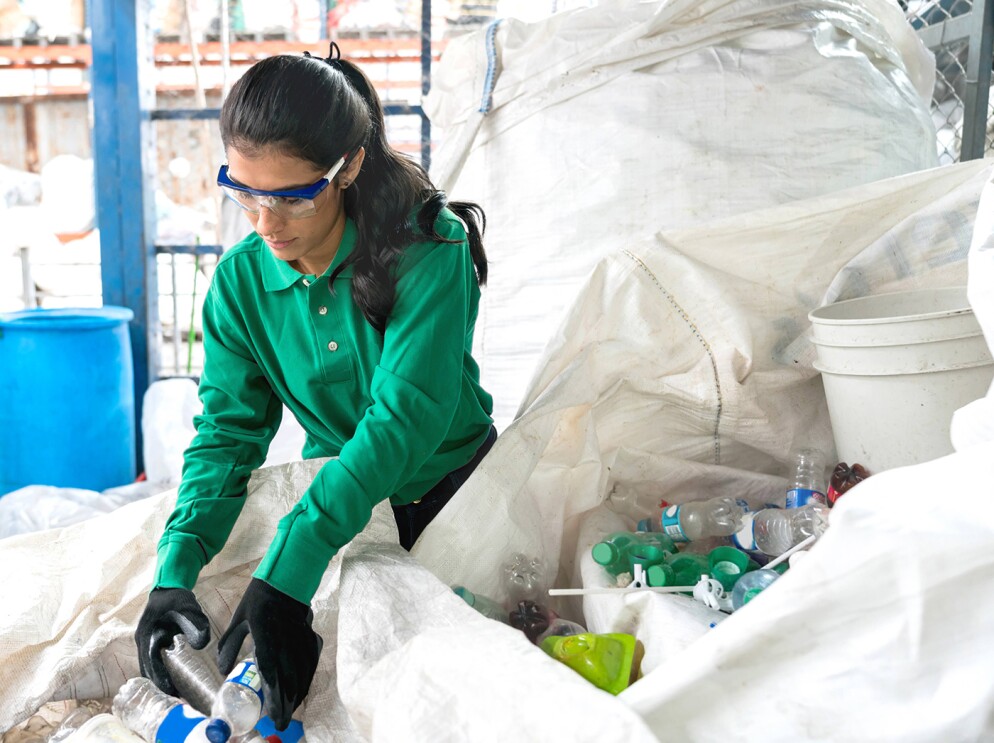
Our vision of a circular economy keeps resources in use for as long as possible. At Amazon, we know we can’t get there alone. We are members of The Recycling Partnership to improve curbside recycling in the U.S. and have invested $10 million in the Closed Loop Infrastructure Fund to minimize waste and make it easier for customers and communities to recycle. Most recently, Amazon donated $100,000 to Closed Loop Partners to be used to provide supplies during the pandemic to the brave men and women who are on the front lines of the sanitation and recycling industry. These organizations work with local governments, companies, and communities to improve recycling in neighborhoods across the U.S. and have been working hard to provide assistance to areas struggling to adapt to changes in the recycling system.
We are also excited to share that Amazon joined the Ellen MacArthur Foundation’s Network, as part of our ongoing commitment to reduce waste and share success stories across industries. The Ellen MacArthur Foundation’s mission is to accelerate the global transition to a circular economy. The Foundation works with business, government and academia to build a framework for an economy that is restorative and regenerative by design.
"Amazon is committed to customers and communities across the country,” said Terese Kietzer, Senior Manager on Amazon’s Sustainability team. “We’re on a mission to ensure we’re using our size and scale to make a circular economy a reality across America. We’ve been working for years to reduce waste through better design and new services that delight our customers. By working with all these changemakers in the industry, we will be able to learn and apply new solutions to our own operations and in the communities we serve.”
"As a champion of innovation and technology, Amazon brings a wealth of experience and energy to the Foundation's Network,” said Joe Murphy, the Foundation Network Lead. “Combining the market-leading expertise of Amazon, with the unique opportunities for collaboration and knowledge sharing provided by the Network, creates a fantastic opportunity to accelerate the transition to a circular economy. We look forward to working together as we raise the ambition and collective efforts of our network.”
Along with other members of The Recycling Partnership, Amazon also funded a new initiative to improve recycling activities in Washington, Oregon, and California. The West Coast Contamination Initiative aims to increase the quality and value of recyclables collected in these areas by reducing the amount of non-recyclable material collected via local recycling systems. Results of the project found that surveyed cities in California had an average contamination rate of 20% while Oregon and Washington fared slightly better with average contamination of 11% and 9% respectively. By reducing common contaminants like plastic bags, electronics and clothing, cities can improve the overall quality of the recycling stream. This means less material from the recycling stream goes to landfill, more material gets recycled, and we make it a safer working environment for the workers who make it all happen.
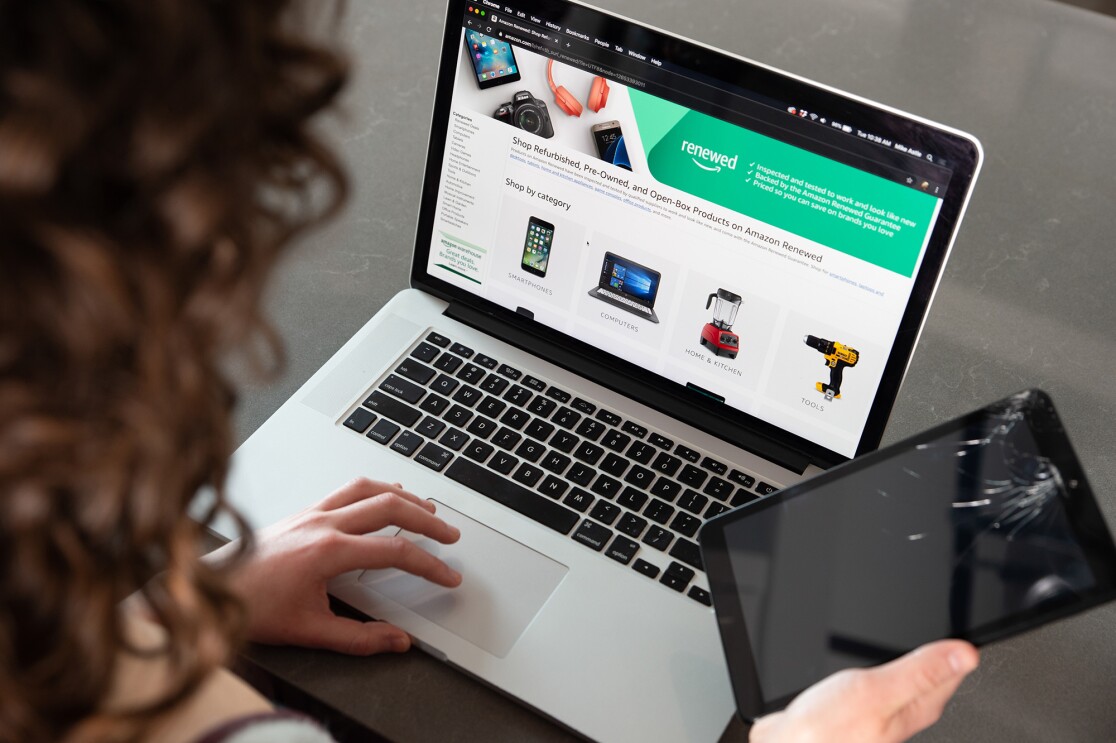
Items like old clothing and electronics are almost all recyclable, but research has found that the majority end their journey in a landfill. As part of our commitment to building a circular economy, on the U.S. East Coast, we’re working with companies to make it easier for customers to recycle old electronics and clothing through door to door pick-up services like Retrievr.
Of course, starting with reducing our own material use is also critical. We’ve made continued progress on reducing our packaging waste. Our Frustration-Free Packaging programs encourage manufacturers to package their products in easy-to-open packaging that is 100% recyclable and ready to ship to customers without additional Amazon boxes. Since 2015, we have reduced the weight of outbound packaging by 33% and eliminated over 900,000 tons of packaging material, the equivalent of 1.6 billion shipping boxes.
At Amazon, we are committed to protecting our planet. But most importantly, it’s critical that everyone find a way to participate, and we are making this as easy as possible. Amazon customers – or anyone interested in recycling - can find out how to recycle all types of Amazon packaging and devices and shop refurbished or reused items by visiting Amazon Second Chance. Learn more about how Amazon promotes the transition to a circular economy here.




